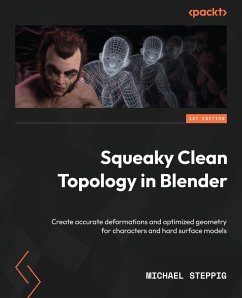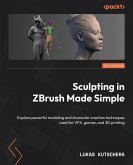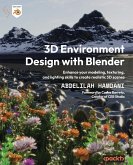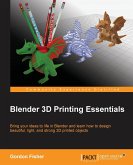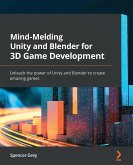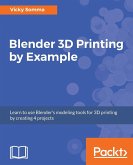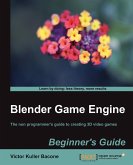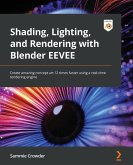A comprehensive introduction to 3D modeling, from the fundamental ideas of topology to in-depth examples that will help you take your projects to the next level Key Features:Overcome complex topology problems while working through projects Learn to topologize quad-based and non-quad-based meshes with step-by-step examples Optimize your models by reducing the triangle count to improve performance Book Description: This book is an introduction to modeling and an in-depth look at topology in Blender, written by a Blender topology specialist with years of experience with the software. As you progress through its chapters, you'll conquer the basics of quad-based topology using triangles and Ngons, and learn best practices and things to avoid while modeling and retopologizing. The pages are full of illustrations and examples with in-depth explanations that showcase each step in an easy-to-follow format. Squeaky Clean Topology in Blender starts by introducing you to the user interface and navigation. It then goes through an overview of the modeling techniques and hotkeys that will be necessary to understand the examples. With the modeling basics out of the way, the next stop on our journey is topology. Working through projects like a character and a sci-fi blaster, the book will illustrate and work through complex topology problems, and present solutions to those problems. These examples focus on deforming character models, non-deforming hard surface models, and optimizing these models by reducing the triangle count. By the end of this book, you will be able to identify the general flow of a shape's topology, identify and solve issues in your topology, and come out with a model ready for UV unwrapping, materials, and rigging. What You Will Learn:Identify the general flow of a model's topology, and what might cause issues Understand the topology of a character, and the joints that they make up Handle non-quad based topology Lay out your meshes for UV seams Explore and use hotkeys to get things done faster Optimize models for a reduced triangle count Who this book is for: This book is for character modelers, sculptors, poly modelers, and hard surface modelers. Whether you're looking for an introduction to modeling, optimizing high poly or sculpted models, or just a deeper dive into the subject of topology, this book will walk you through the topology workflow from beginning to end.
Hinweis: Dieser Artikel kann nur an eine deutsche Lieferadresse ausgeliefert werden.
Hinweis: Dieser Artikel kann nur an eine deutsche Lieferadresse ausgeliefert werden.

